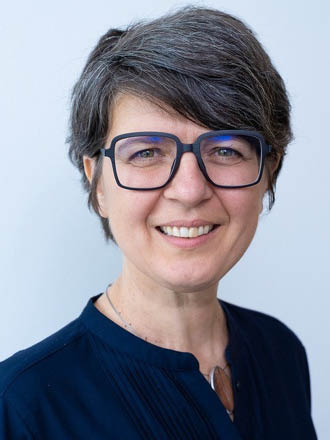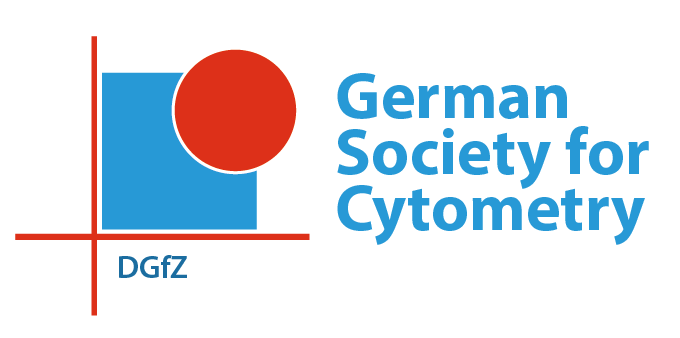Klaus Goerttler Session
Friday, 13.09.2024, 1:00 pm
Chair: Annika Betzler, Klaus Goerttler Awardee 2023
Germinal centers (GCs) are transient structures that form within B cell follicles of secondary lymphoid organs in response to T cell dependent antigens. Within GCs, B cells undergo intensive proliferation, somatic hypermutation, class-switch recombination and affinity maturation. As a result, high affinity antibody secreting plasma cells and memory B cells are generated. The GC is not the only environment in which B cells can participate in the immune response. B cells can also develop via the extrafollicular pathway into short-lived plasma cells to provide an early source of antibodies during infection. High-affinity antibodies are essential for combating of pathogens, but they can also trigger allergies and autoimmune disease, when directed toward self-antigens. In healthy individuals, self-reactive B cells are counter-selected or regulated. However, in some people, failure of B cell tolerance checkpoints leads to the formation of autoantibodies and the potential development of autoimmune diseases. Understanding the origin of self-reactivity, more specifically of autoreactive B cells, is of therapeutic importance. This year’s Klaus Goerttler Session will give insights into methods and tools for the precise characterization of autoreactive B cells in B cell-mediated autoimmune diseases and how to close potential gaps in their treatment.

Marta Rizzi
Dept of Rheumatology and Clinical immunology and CCI – University Medical Center Freiburg and Center for Pathophysiology, Infectiology and Immunology; Institute of Immunology – Medical University of Vienna
Modulation of peripheral B cell maturation and generation of autoantibodies: lesson from rare autoimmune diseases
The presence of autoantibodies indicates a breach of B cell tolerance. Antibody diversity in the primary repertoire and the occurrence of somatic hypermutation in activated mature B cells carry the inherent risk of generating self-reactive specificities. Peripheral selection ensures the maintenance of tolerance. After initial activation, B cells can either develop via the extrafollicular pathway, resulting in the rapid generation of antibody-secreting cells, usually of low affinity but enriched in autoantibodies, or migrate to the germinal center, where they undergo affinity maturation, resulting in the generation of a long-lasting memory response. In several autoantibody-mediated diseases, extrafollicular maturation is associated with the generation of autoantibodies, such as in systemic lupus erythematosus (SLE) or multiple sclerosis. The persistence of autoantibodies after treatment with B cell depleting agents, on the other hand, may indicate a germinal center origin of autoreactive B cells. The study of the origin of tolerance breaches within the B cell compartment not only helps to understand the pathogenesis of the disease, but also to anticipate the benefit of targeted therapies in modulating disease-specific B cell function.
Biosketch
After studying Medicine at the University of Genoa/Italy, Marta Rizzi completed her PhD in Clinical and Experimental Immunology in Genoa/Italy and San Diego/California in 2004. In 2007, she completed her residency training in Allergology and Clinical Immunology. Since 2006, she has been conducting research at the University Medical Center Freiburg – initially as a postdoctoral fellow, and later as head of a research group since 2014. In 2014, she was awarded the prestigious Margarete von Wrangell fellowship.
Since 2022 she is Professor of Clinical and Experimental Immunology at the Medical University of Vienna.
She has been awarded the prestigious Heisenberg Professorship of the German Research foundation (DFG) and since 2023 she is also Professor for Experimental and Translational Rheumatology (Heisenberg) at the Faculty of Medicine of the University of Freiburg.
Marta Rizzi research focus is human B-lymphocytes development, maturation and activation in physiological and pathological conditions. She has developed unique expertise in in vitro modelling of early and late human B cell development, that she uses: to uncover mechanisms of disease in monogenic defects leading to autoimmunity; to study the B cell function in more complex rheumatological diseases; to assess the specific impact on human B lymphocytes of novel targeted therapies.

Name
Affiliation
Abstract
Text

Name
Affiliation
Abstract
Text

